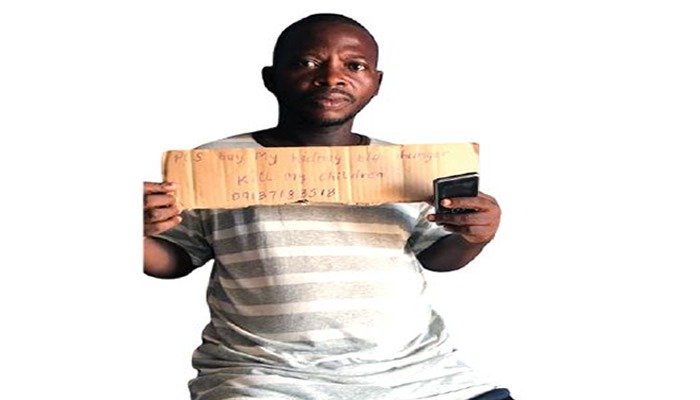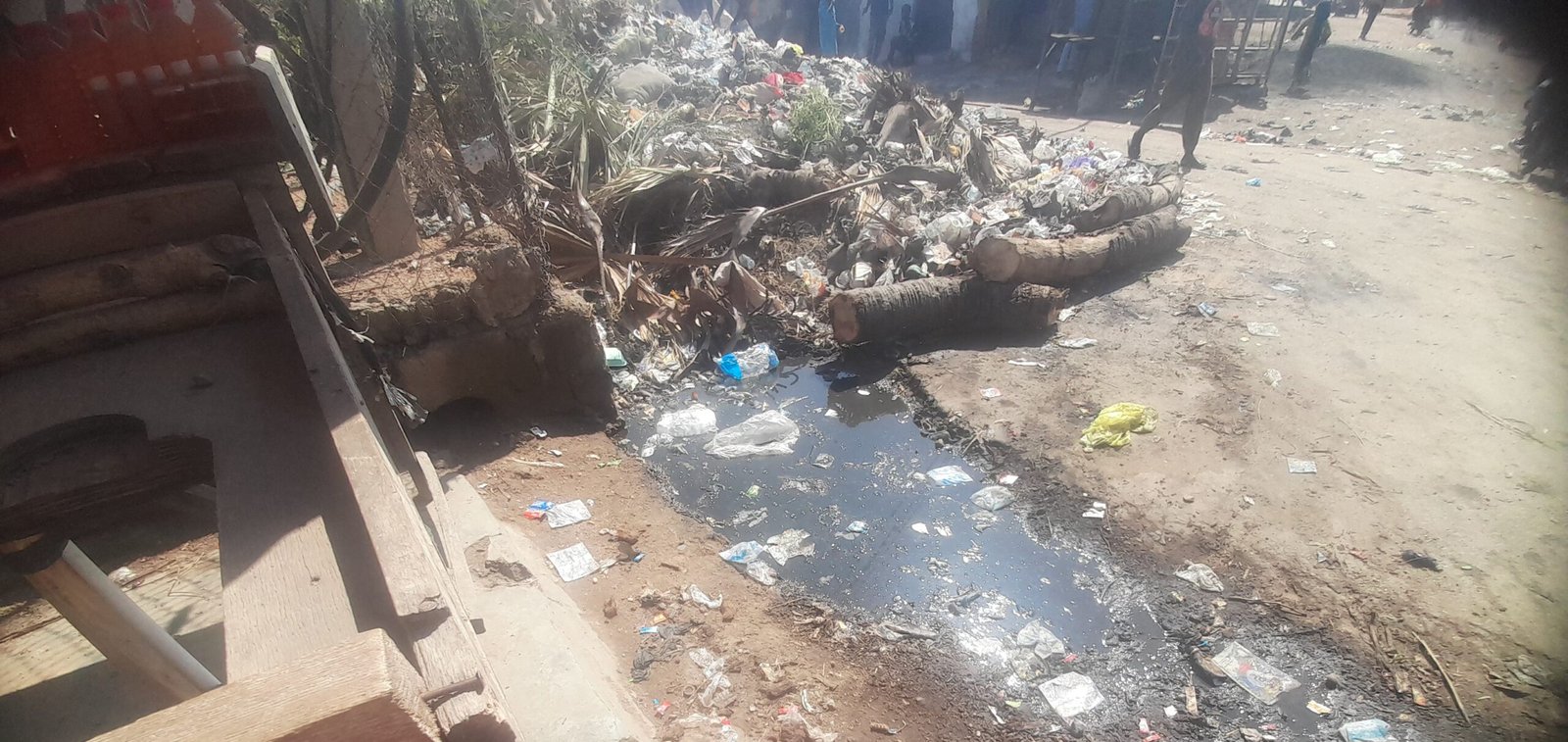Olaniyi Iyiola an Ibadan resident blames poverty, the current economic hardship in Nigeria for his desperate action to sell his kidney, which he used the social media windows to market.
Against this backdrop, Korede Abdullah in this special report asks a critical question if Iyiola’s action amounted to committing suicide
The harsh economic reality in the country has pushed many to consider taking certain dangerous risks which may involve their own lives to survive. This desperation is the lot of Olaniyi Iyiola, a 41-year-old indigene of Ondo State.
Poverty
Olaniyi and his family had been blighted by abject poverty and he thought that the only escape route to putting an end to his misery was to offer one of his kidneys for sale.
According to Olaniyi, he had been involved in fish and pig farming and acquired skills in the trade before the reality dawned on him when he was unable to secure the capital to start his own business, leaving him distressed without employment. His predicament became more worsened with three children aged 11, 4, and 2 years old and wife to cater for.
Earns N15,000 Wage
In an Interview with a national daily, the 41-year-old painted a grim picture of his situation, “My wife works as an auxiliary nurse, yet financial constraints persist. She supplements her income with a cleaning job at a school in Ibadan, earning a monthly wage of N15,000. Despite past salaried positions, including earning between N25,000-N30,000, we still don’t have financial stability. The current economic landscape offers few prospects”
He continues, “I undertake odd jobs whenever available, but sustenance remains a challenge. We often rely on garri and palm oil for sustenance, underscoring the severity of our plight.”
Olaniyi rued his pathetic condition, saying the meagre income from his wife’s job as an auxiliary nurse could not keep their heads above water, he had to resort to the last option on his table.
Desperate To Survive
According to him, selling his kidney became a desperate measure to secure his family’s well-being, particularly that of his children.
“My intention is to secure funds for establishing businesses and ensuring financial stability for my family, particularly my children. It’s a last resort borne out of desperation, driven solely by the desire to provide for my family.” he lamented.
As pathetic as Olaniyi’s story appear, the reality is that the phenomenon of organ harvesting has become a global concern with many countries evolving measures to curb it. Nigeria as a country, has had its own a fair share of the social malaise and it has had its heavy toll on individuals, families and the society as a whole.
Experts’ Views
Africa Health Report spoke with Alhaji Ibrahim Yusuf, a media practitioner, he shared interesting insight into the menace of organ harvesting, a development, he said was a global phenomenon.
According to him, organ harvesting is a hydra-headed monster which needs to be nipped in the bud, but regrettably, he said getting the virus out of the way is going to take a Herculean task after all, because it’s one thriving, multibillion dollar industry.
“I recall my first experience travelling to Europe some 14 years ago. Precisely in Austria, in Vienna, where I learnt firsthand the bourgeoning trade in organ harvesting. I had gone to attend the AIDS Conference that year. In the hotel where we quartered, I saw a fellow who was a courier for organ harvesters.
“I was in the company of a new acquaintance from Kenya and were both having a cozy time outside when this gangly fellow approached us. He got all too nice with us. He was so friendly. Pronto he invited us to join for a drink in a pub nearby. We didn’t suspect anything at all. As a teetotaler I didn’t do liquor but my friend from Kenya had a field day, guzzling up some reasonable amount of liquor at the expense of our host. When it was sundown, we asked to take our leave but not without sharing our addresses., ” he said
He continues, “At past midnight, our host got across to us at the hotel where we were staying requesting to see us. The receptionist called intercom and we joined the fellow at the hotel lobby. When we met him he said he wanted us to go clubbing. I declined outright. Unfortunately, my Kenya fellow was too dumb to comprehend anything so he left without us. After he left us, the receptionist would later confide in us that the fellow was actually a courier for organ harvesters and was operating a ring across Europe.”
Pressed further, Yusuf said, “But for providence, yours truly would have fallen prey to these haters of humanity.” This underscores the extent some go to be engaged in illegal kidney globally.
According to investigations by Africa Health Report (AHR), kidney sale is the highest of organ harvesting, in terms of demand. Many factors have been adduced for the increase in the sales of kidney, which include poverty, ignorance, unresolved debt and the need to meet other financial obligations.
People who are considering becoming a kidney donor have been advised by doctors to carefully weigh the potential risks and benefits of donating a kidney. Despite the fact that kidney harvestation fetches immediate monetary gratification for the donor especially if done for financial gains, and gives a lifeline to the beneficiary, medical experts have never stopped to list the risks associated with it. The surgery, according to experts, involves a certain level of risk and complications for the donor as in any other major surgery.
Medical experts say kidney donors typically experience a 20 to 30 percent decrease in kidney function after donation. The remaining kidney compensates for the loss of one kidney, through a process called hyperfiltration. Other complications that may occur in the long-term following surgery to donate a kidney may include diabetes, high blood pressure, obesity and natural decline in kidney function as the donor gets older which may lead to death.
Apart from the above physical effects on the donor, experts opine, it also has a lot psychosocial and emotional risks.
The potential donor may be worried about their potential recipient or may feel guilty about the health problems that person is experiencing. On the other hand, the potential donor will likely feel stress and concern related to the possibility of donating their organ, which requires them to undergo surgery themselves.
Nigeria has an enabling law against organ trafficking and related activities. The Trafficking in Persons (Prohibition) Enforcement and Administration Act (2015) criminalizes human trafficking, including organ trafficking, and makes provisions for penalties for those involved. Also, the National Health Act (2014) regulates healthcare in Nigeria, including organ transplantation, establishing legal framework for organ donation on ethical basis and transplantation.
The Criminal Code Act and Penal Code Act which operate in the southern and northern states and contain some provisions which criminalize offenses like kidnapping, abduction, and illegal confinement which can be applicable to cases of organ trafficking. With all the federal legislations, will illogical organ harvesting come to an end? Time will tell.



